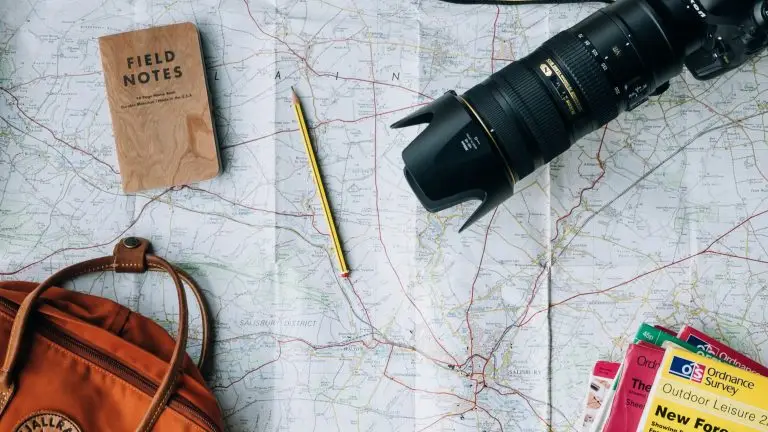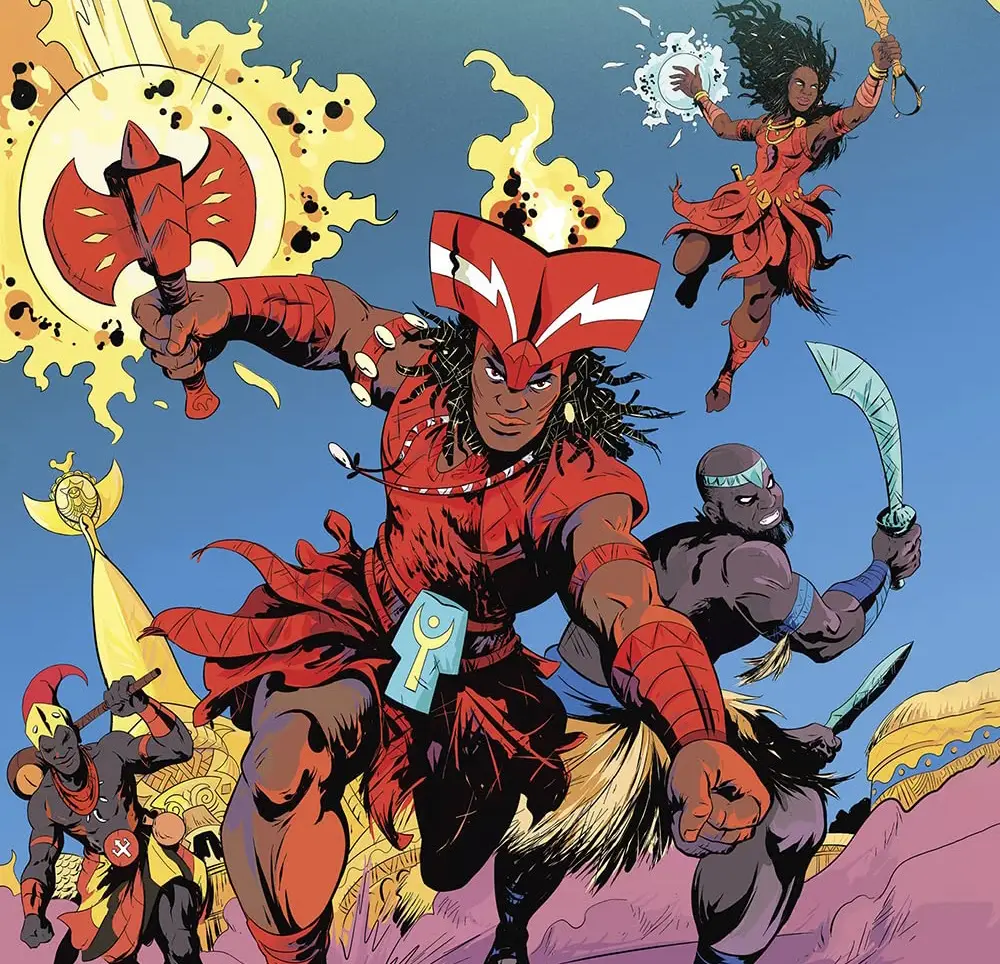
Turning Gods Into Superheroes | Tales Of The Orishas & Hugo Canuto
Last year, I visited Bahia, one of the most magical places I’ve ever been. Its capital, Salvador, is known as the blackest city outside of
It’s 4 pm, and I’m standing at Mexico City’s airport. I’m carrying a black backpack, Dutch stroopwafels, and my newly acquired Jipijapa hat (a local hat that ironically accentuates the fact that I’m not a local). I’m about to travel to Nicaragua, but the lady at the counter is telling me otherwise.
It turns out that I was supposed to send my PCR test to the airline 30 hours ago, and now I’m not allowed to board the plane. I’m stuck in Mexico. I know there are worse things than being stuck in a country with fantastic food, people, culture, and sunny beaches, but I was supposed to go to Managua for work. In addition, I was going to meet the famous TV star, actor, writer, and producer Gabriel Traversari.
The CEO of one of the companies I work with introduced me to Traversari and set up the meeting. Luckily, Gabriel didn’t mind doing the interview online, so two weeks later, I’m at home on a video call with him.
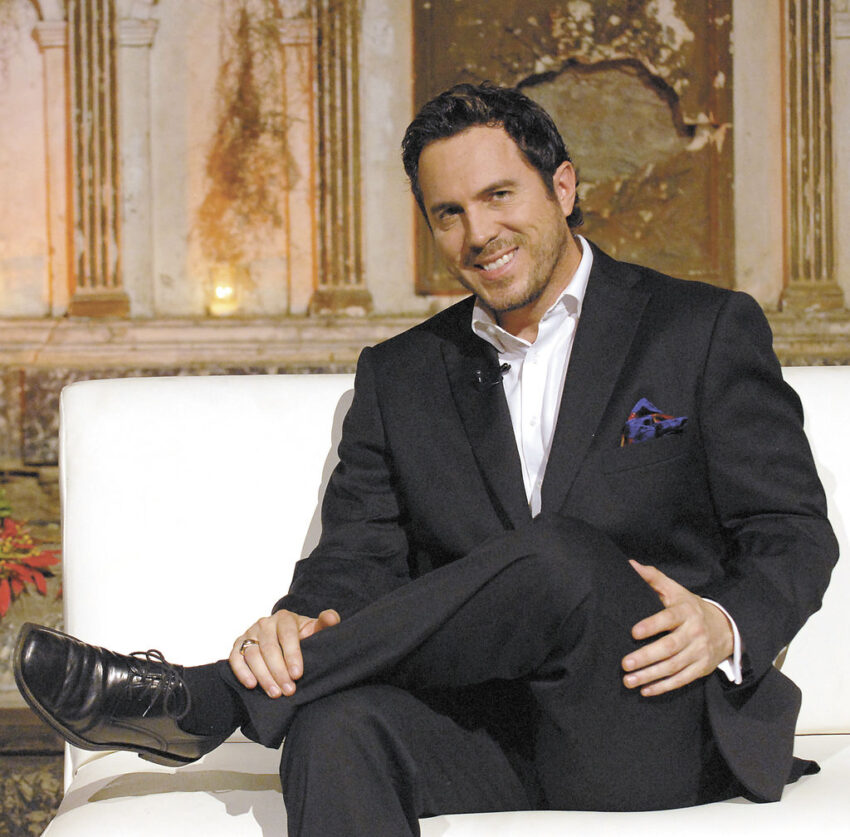
It’s still early morning in Managua, and Traverari is ready for the interview despite some back pain. Because I will publish the content in written form, I told Gabriel there’s no need for a professional setup. Despite his informal attire, it’s immediately apparent that Gabriel is an artist: his room is full of bookcases, paintings, and a guitar.
For those who don’t know Traversari, you must realize that his CV is somewhat intimidating. Gabriel has been a TV host, written several books, acted in Hollywood movies, started bands, and organized large concerts and cultural events in Nicaragua. Some call him a jack of all trades, master of none. Given his long list of achievements, he seems like a jack of all trades and master of all.
Traversari started acting while in college and eventually landed a role as a TV anchor for Univision, the first Hispanic Television Network in the US. That gig changed his life and made him a household name almost immediately. He worked for Univision for three years and continued working as a TV host and producer for over two decades. During these years, he worked for five other international Spanish venues, including E! Entertainment, MGM Networks, Latin America, and Cosmopolitan Television.
Despite his success, Gabriel always felt there was more to life than just being “in the spotlight.” Following an inner calling, he later moved from the US to Nicaragua to build the country’s cultural sector. During this time, he has shown himself to be all he wanted, diving into writing, singing, and producing.
Let’s not stall any longer and dive into the details.
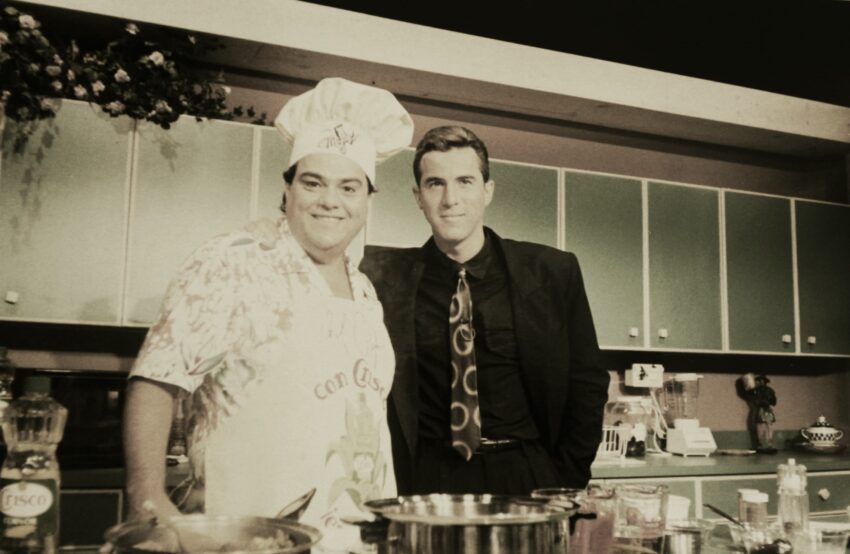
Gabriel was born in the US to an Ecuadorian father and a Nicaraguan mother. He spent his childhood in Nicaragua and moved to the US to attend high school. He later studied theater at Florida State University in Tallahassee, Florida, and started acting during his tenure there. Some of his honorary professors at FSU included acclaimed film and theater actor Raul Julia, New York theater producer Joseph Papp and legendary Royal Shakespeare Company member and film and TV star Roger Rees.
Around this time, Gabriel began doing commercials, voice-over acting, and appearances in TV series like Miami Vice. Although these roles didn’t extend beyond “3 or 4 lines”, it was a wonderful experience, and Gabriel was eager for more.
He initially set his mind on Hollywood, but life took an unexpected turn. During an extended visit to Miami, he inadvertently met many Latin actors from the area. Gabriel soon realized the potential in that city. Most of his newfound colleagues advised him not to get lost in Hollywood’s craziness and to try Miami instead. Gabriel decided to follow this advice.
He moved to Miami and contracted two professional agents who began sending his pictures around (this is how things work in the movie industry). Soon enough, Gabriel landed important publicity campaigns and became the spokesperson for numerous national and international brands. He was also lucky enough to meet people like Luis Palomo, an established Cuban American film director who helped steer the initial stages of his career, and Cynthia Hudson, currently one of the most successful Spanish Television executives in the US and the person responsible for Gabriel’s first television job at Univision. His success didn’t come fast, though.
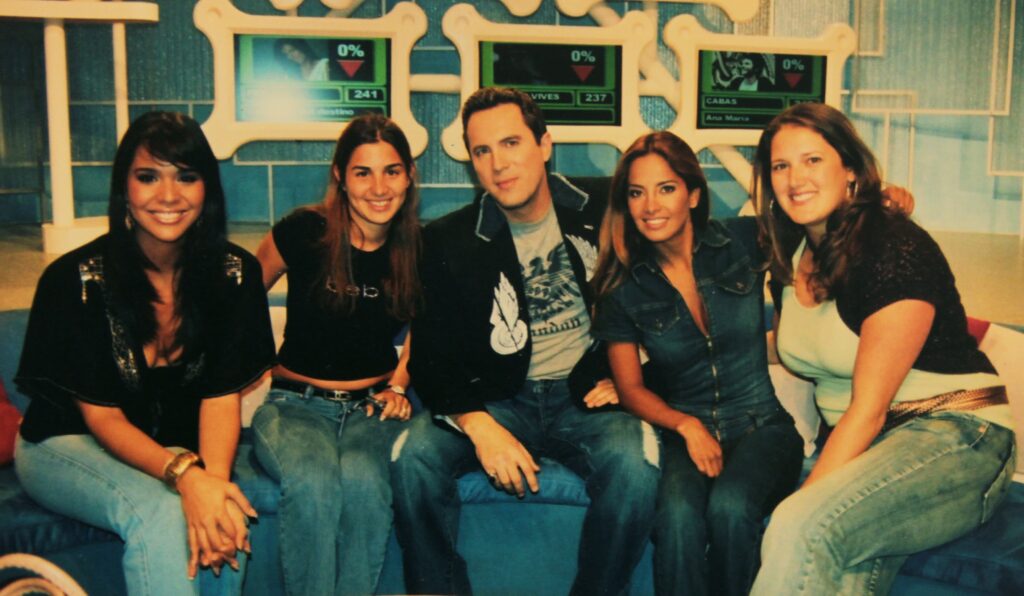
Although diligently pursuing his acting dream, Gabriel had to find a way to make ends meet, so he began to work at a prestigious Miami hotel. Not an entirely glamorous job, but one that had at least one significant benefit: many movie celebrities stayed there. Since being at the top can often be lonely, some of these stars would regularly ask Gabriel to sit with them and listen to their life stories. Always ready to seize the moment and learn from his experiences, the up-and-coming star would gladly partake in these brief but memorable conversations. Unfortunately, his courteous support never provided him with any professional leads.
Gabriel recalls feeling somewhat depressed one day because nothing seemed to be moving in the right direction. He had had a meeting at Channel 23, the local affiliate of what would eventually become Univision. There, Traversari met Cynthia Hudson, and although she didn’t have a job for him then, she kept his picture and resume and mentioned that an exciting project might be coming soon. He never heard back from her, so he expected this wouldn’t work out either.
Then one day, several weeks later, as he opened the door to his house to retrieve the newspaper, he noticed a letter on the doormat. It was from Cynthia. The letter read: “Hi Gabriel, I lost your number and have been trying to reach you forever. Please give me a call as soon as you get this.”
Gabriel grabbed the phone and called her right away. She told him that Channel 23 was doing a pilot for a morning show and was thinking of him for the role of entertainment anchor. He interviewed and got the job. The show was called TV-Mujer, a daily magazine-style program directed at Hispanic women in the US.
Initially, he had no clue what to do. His experience mainly had been theatrical and performance-oriented. But as the show continued, and given his ability to absorb information and project himself naturally, he quickly gained tremendous momentum and soon became a principal anchor. Many of his female counterparts came and went, but Gabriel stayed on for the entirety of the show’s history. His participation became an essential aspect of TV-Mujer, and the viewing audience loved him. The program broadcasted internationally every single day for three years in a row. These are the three years that made Gabriel famous.
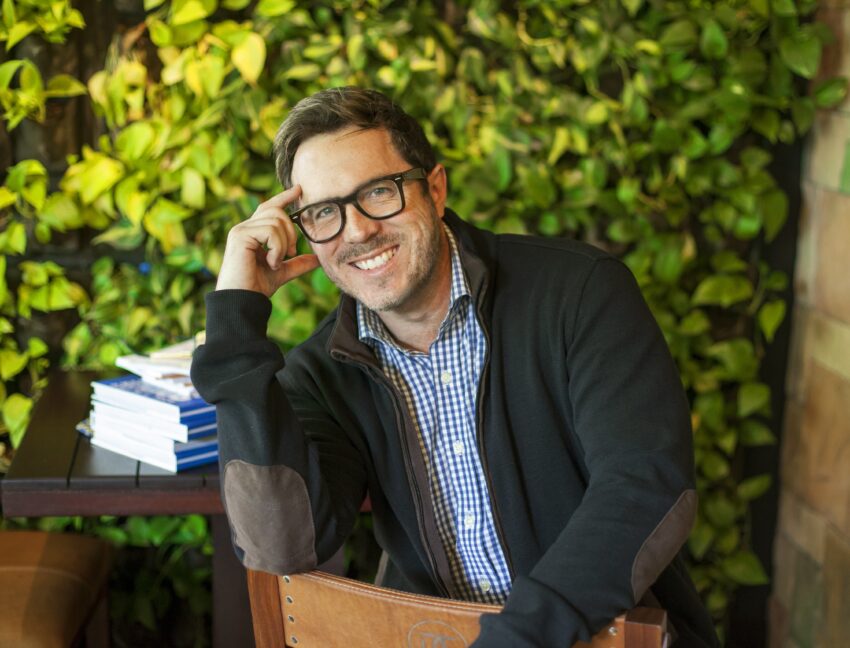
Gabriel decided to put acting on hold and completely focus on TV hosting. After this first talk show, he starred in the popular Mejorando su Hogar and Casa Club Magazine, both airing on Casa Club TV, an MGM Networks Latin America subsidiary. He would then move on to produce and direct E! Entertainment’s Un Día de Fama (a day in the life of a celebrity) and many episodes of Behind the Scenes, a series of special programs aired by E! Entertainment, Latin America. Traversari also became the network’s Miami-based entertainment correspondent.
He was one of the lead voices for the Spanish version of the Emmy-award-winning cartoon Duckman and the voice of Juan del Diablo in the English translation of the soap opera Corazón Salvaje. He also appeared in various television series and soap operas.
Throughout his television career, Gabriel has interviewed many artists and celebrities. His intention was always to share in the human experience of his guests, but his producers felt otherwise. During the last show he hosted, he would constantly be instructed – through his earpiece – to focus on more scandalous fare and less on the more meaningful aspects of his guests’ lives.
After twenty years of television performances, it was time for something new. Gabriel terminated his last contract and decided to find his truth. This is when he decided to move back to his motherland, Nicaragua.
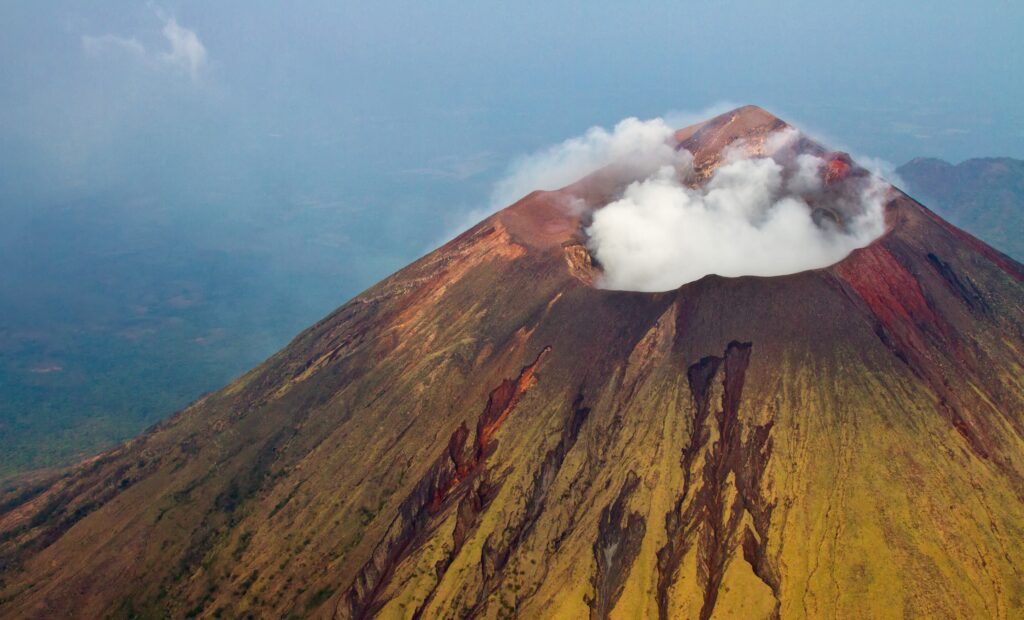
“It might be hard to grasp if you’re not from Latin America, but Nicaragua’s landscape and volcanos start beckoning you to come back at some point,” Gabriel told me. He felt the country’s pull and decided to pack his bags and leave The States to explore his other talents. As soon as he arrived, he began producing, writing, singing, and organizing events. Despite his long list of achievements, the journey hasn’t been easy.
Gabriel admitted feeling blessed. He had a good life in the US, a fun job, and a healthy dose of glitz and glamour. Traversari also surrounded himself with successful artists. He often has to defend giving up his comfortable lifestyle for daily cold showers (he has no hot water connection in Nicaragua) and a constant fight to transform the cultural sector.
Why did he do it? Gabriel wants to show the world Nicaragua’s wonderful richness and potentiality. Many foreigners feel the country is violent and unsafe, and although Nicaragua has its challenges, it also has a lot to offer. Despite Nicaragua’s talent, the cultural sector is small and mostly local. Gabriel aims to change this and help alter the limited perception people have of his native country.
The Nicaraguan population doesn’t have the same chances many US citizens have. This lack of opportunities forces them to become entrepreneurial and resourceful. Gabriel refers to his current adventure as the Nicaraguan Bootcamp. It’s challenging but incredibly educational.
As part of this plan, he shot a documentary about Nicaragua, wrote a book about the former dictator and his family, founded a boyband, and launched several prestigious cultural events, such as Latin Flavors, the first Food Festival featuring Nicaraguan and international TV chefs and gastronomical celebrities.
Let’s dive into all these separate elements in more detail, starting with film, followed by music and writing.
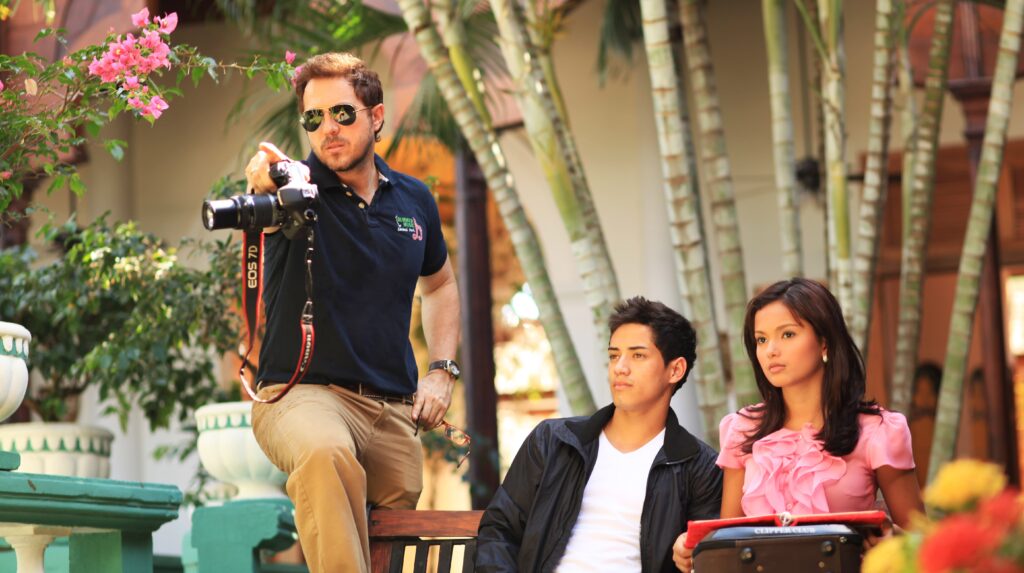
After graduating from college, Gabriel had a minor role in Fernando Trueba’s movie Too Much. He didn’t mind it was small (“way small”); he just wanted to meet the Oscar-winning director. Years later, the two met again at the Miami International Film Festival. This time, because of Gabriel’s documentary Por los Caminos, a 24-hour journey through Managua’s streets, which along with Trueba’s new animated film, was being shown at the festival.
Por los Caminos allowed Gabriel to interview the people of Managua, from drug addicts to artists to ex-guerrilla fighters. According to him, the movie was mostly about finding himself. He lacked equipment, and although he was happy with the result, he didn’t consider it his masterpiece. By far. Worldwide, people disagreed. The documentary was featured in eight international movie festivals, including the Miami International Film Festival, the Havana Film Festival, and the London Latin Film Festival. It was also used as part of Amnesty International’s educational program.
For Gabriel, it was especially great to be recognized by the Miami Film Festival in a city that felt like home to him. Upon meeting Trueba, Gabriel promised to invite the film director to Nicaragua to promote his movie and help support the arthouse cinema scene. Although Trueba was happy to participate, Gabriel couldn’t get a budget from the government. In his terms, this “myopic vision” of things represented one of the many setbacks he experienced in his motherland.
But he is not one to give up easily. In 2020 he directed a short film called La Carpa. The movie played in over 15 film festivals worldwide and received several awards. However, movies are only part of the cultural landscape and Gabriel’s ample oeuvre. In making his film, Gabriel’s goal was to promote Nicaragua’s limited film industry and give local actors and technicians an opportunity to work. He became fully involved in all aspects of that project, including writing, producing, editing, and even supervising the musical score. Let’s now move to his music career.
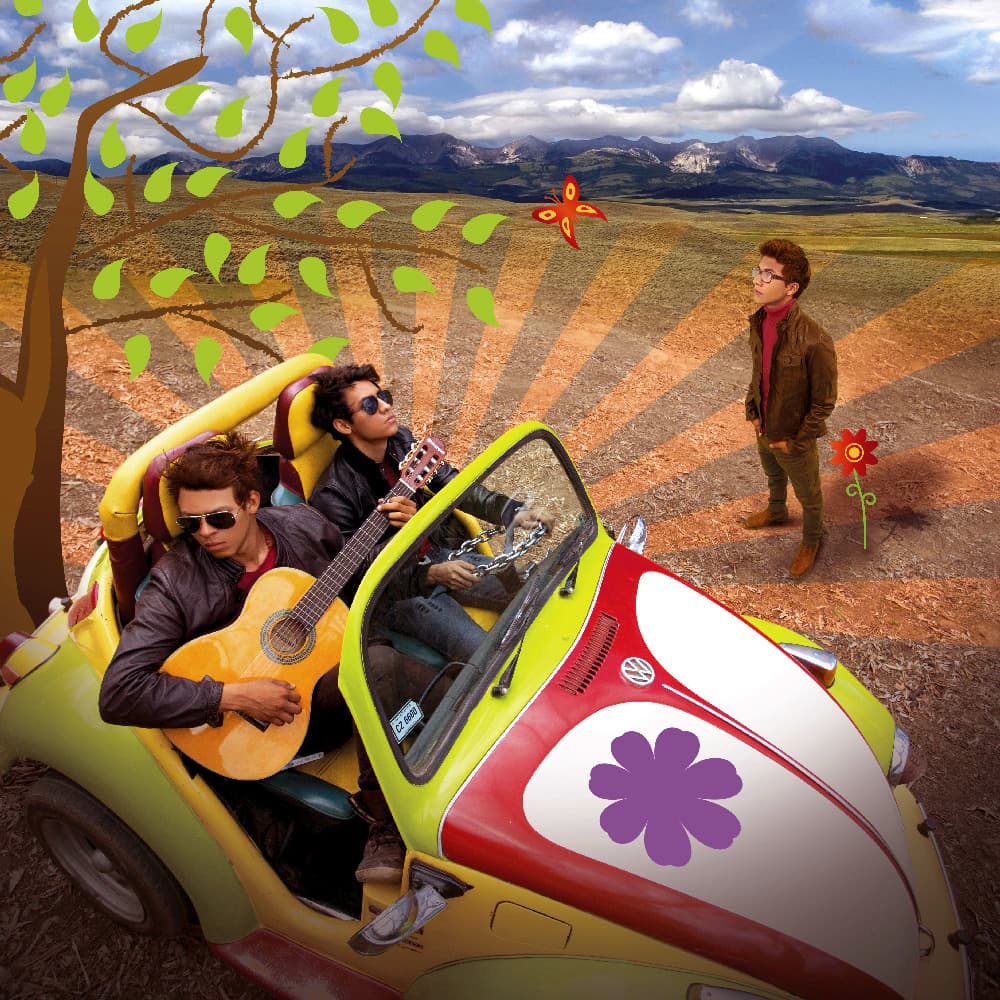
Around the time he was shooting Por Los Caminos, Gabriel Traversari released a musical album called Luna de Piel. During our interview, he mentioned that he never got comfortable singing in front of crowds, despite his many years in front of the camera. He has played with the idea of producing another album without lyrics but is not planning to sing again any time soon. You never know, though.
He did create a music sensation with Myla Vox, a Nicaraguan Boyband with four young members (three in its final phase) who emerged from local barrios. The group ignited a pop cultural frenzy that lasted over six years before the band finally separated.
Additionally, Gabriel founded the Central American Music Conference, an event aiming to unite regional talent with top international record labels and executives and teach musicians from central America the so-called “tricks of the trade.” The first conference, held in Nicaragua, brought several important people to the country, from Grammy-winning producer KC Porter to music impresario Bruno del Granado. In step with all these initiatives, Gabriel also created the Nicaraguan Music Awards, the first music award platform in the country, which, to Gabriel’s disappointment -yet again-was only sponsored for two consecutive years.
Gabriel Traversari wrote his first book in 1996, called Before the Dawn, a somewhat dark and introspective poetry collection. He also published a photography book: Vernaculo: Encuentros con mi Tierra, an anthropological study and homage to the people of his country. He then edited Azul y Blanco: 90 minutos que unieron Nicaragua, a photo-journalistic account of a historical soccer match that altered the course of Nicaragua’s national football league, and Hecho en Nicaragua, profiling the lives of extraordinary Nicaraguans who left an important mark on the world.
In my opinion, one of his most exciting projects is Verso y Voz, an audio project celebrating the best of Central American poetry. Central America is known for its verses and bards, which younger generations often forget. For this ambitious undertaking, Gabriel recruited thirty renowned Spanish-speaking celebrities (primarily actors) to do a spoken word project to bring the region’s poetry back to life.

Gabriel’s most famous book is likely The Dictator’s Daughter, a biographical account based on the life of Lillian Somoza Debayle, daughter of Nicaragua’s notorious military dictator, Anastasio Somoza Debayle.
For 43 years, from 1936 to 1979, the Somoza family ruled Nicaragua. The dictatorship was founded by Anastasio Somoza García and continued by his two sons Luis Somoza Debayle and Anastasio Somoza Debayle.
Gabriel happens to have family ties to the Somoza family. His second aunt was, in fact, the dictator’s daughter herself. Although he’d met her as a young boy, he recalled very little about her and his family’s actual connection to the Somozas. Amongst the only, not so faded memories are his meeting with Anastasio Somoza when he was seven years old and his yearly Christmas present, which was always the same stuffed animal, strangely enough. Apart from that, he didn’t know much about the family. This all changed in 2014.
Gabriel Traverari was traveling to Washington to visit Lilian’s daughter, Julia. As a kid, he had been the ring bearer at her wedding and had recently planned to see her again after so many years. Julia’s mother lived all by herself in a massive mansion in Potomac, Maryland, so Julia suggested that Gabriel stay at her place instead of booking a hotel. He spent the entire week there and soon learned much about Lilian’s intimate life. That’s when the idea arose to turn the conversations into a book.
The Dictator’s Daughter is not an all-reveal story. Gabriel is aware of the difficulties of this part of his country’s history. His aim has simply been to share a point of view not available to the public before. “People often perceive things in black and white when the truth is so much more complex,” he told me. His book’s contribution to Nicaragua’s historical annals is important. As is the possibility for people to use information not formerly available to them and form their own opinions.
Although this is a highly political topic, Gabriel tries to avoid politics as much as possible. His goal is to focus on art and culture and anything else that may benefit society. He wants to tell stories, make people aware, and generate new perspectives. The Dictator’s Daughter is part of that line of thinking.
Despite working in a challenging environment, Gabriel built an incredible portfolio of achievements. I asked him about his advice for aspiring entrepreneurs, artists, and his fellow citizens. Gabriel’s response was simple yet profound: “Never give up. Be resilient and stay focused.”
Younger generations often believe that fame and success happen instantly. This conviction is primarily the result of social media influence. Although Gabriel jokingly said he wouldn’t mind having a stupid TikTok video that might make him filthy rich, he firmly believes in being patient and consistent with one’s vision.
Typically, success takes time. “To leave a real mark, you must consider what projects will elevate you and the people around you. Those projects can change our shared consciousness, even if it’s a local society at a time.”
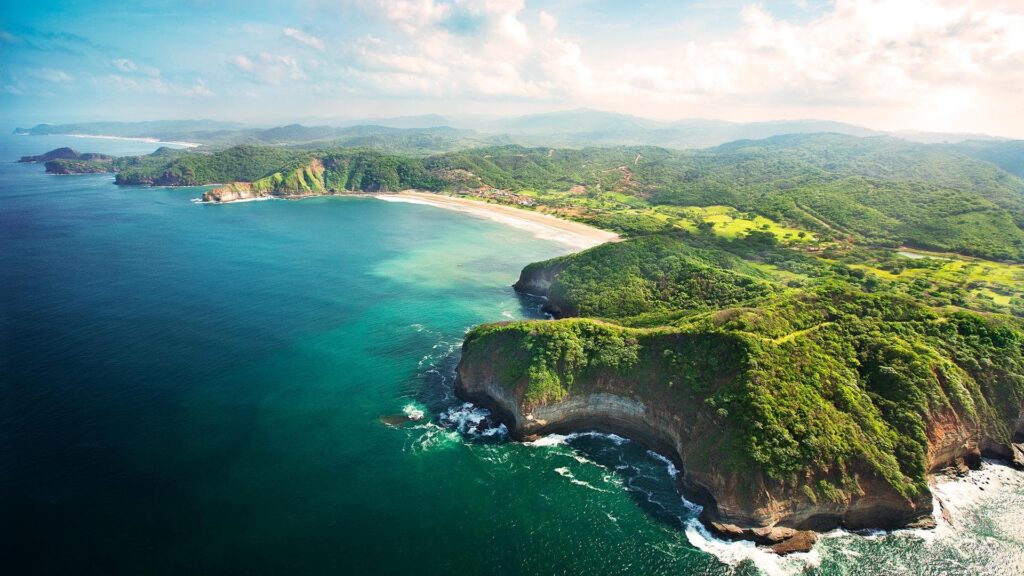
When you speak to someone with such an impressive cultural background, it would be a shame not to ask for recommendations. Although there’s much more Gabriel Traversari could recommend, here are some of his favorites.
Check my cultural recommendation list for more cultural tips on Nicaragua and other countries.
It’s beyond doubt that Gabriel Traversari has done a lot to develop Nicaragua’s cultural sector. He created la Fundación Cultural Hispanoamericana to promote young Hispanic artists, the Central American Music Conference, and the Nicaraguan Music Awards.
Traversari supports his aunt’s initiative: The Future of Nicaragua Foundation, organized a music concert featuring 50 Nicaraguan artists, and composed a musical anthem (Volver a Nacer) featuring over 20 Nicaraguan singers. He launched his country’s most prestigious food festival, supported several Nicaraguan bands, promoted Central American poetry, and published documentaries and books about his country.
If you think Gabriel will stop here, you’re wrong. He is already working on several new initiatives, including the most comprehensive and all-inclusive book about Nicaragua’s most renowned painters.
If this interview peaked your interest and you want to help develop the cultural sector in Nicaragua, you can! If you want to collaborate or finance cultural projects in Nicaragua, you can reach out to Gabriel on LinkedIn.
If you are interested in more conversations like this, check out my interviews with Moldovan Eurovision singer Lidia Isac, a French App called Radiooooo, Mexican composer Leonardo Prieto, African Newsletter The Continent, and Portuguese Fado singer Sara Paixao.
Would you like to receive new interviews straight to your inbox? Make sure to subscribe to my newsletter below.
You will get a bi-weekly email with book, movie, and music recommendations from around the world and first access to interviews and tools to discover more songs, films, and novels.
Do you want global book, music, and movie recommendations straight to your inbox?
Sign up for the newsletter below!

Last year, I visited Bahia, one of the most magical places I’ve ever been. Its capital, Salvador, is known as the blackest city outside of
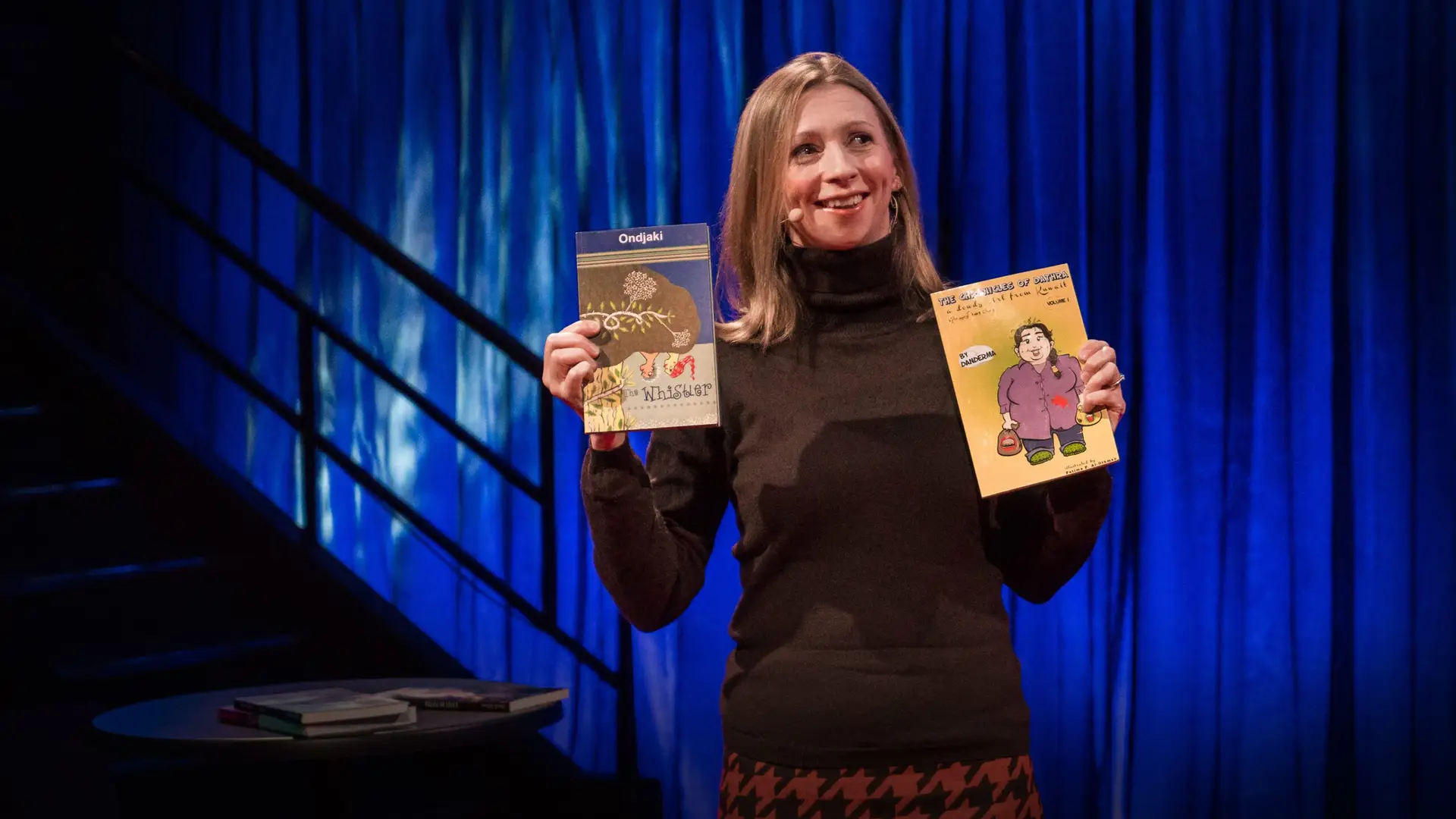
Ann Morgan is an author, speaker & editor. She has written four books and started two blogs, ayearofreadingwomen and ayearofreadingtheworld. She is also a Literary
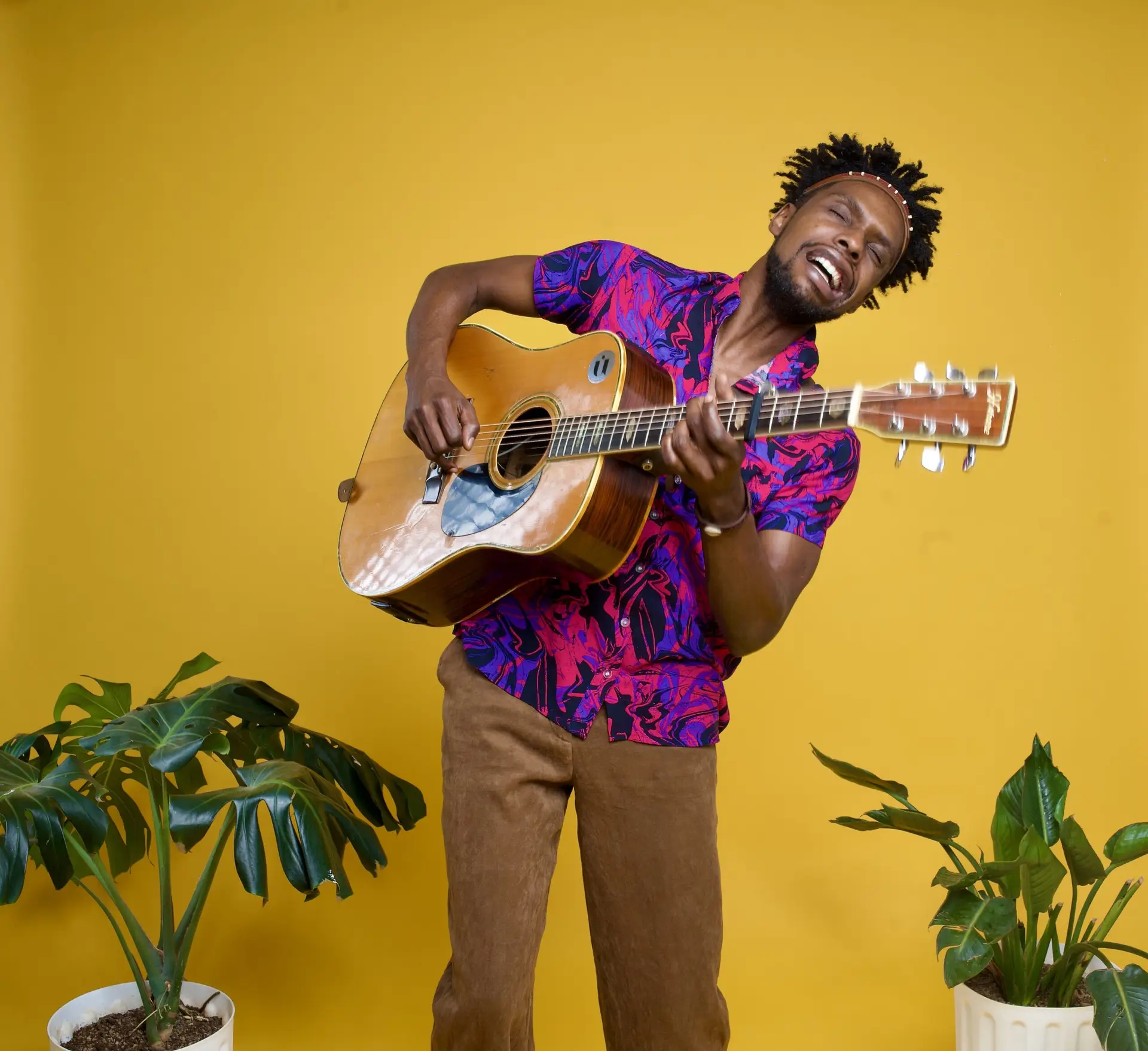
I love Kenyan music and bands like Sauti Soul, but I came across something even more interesting not too long ago. I discovered the father
